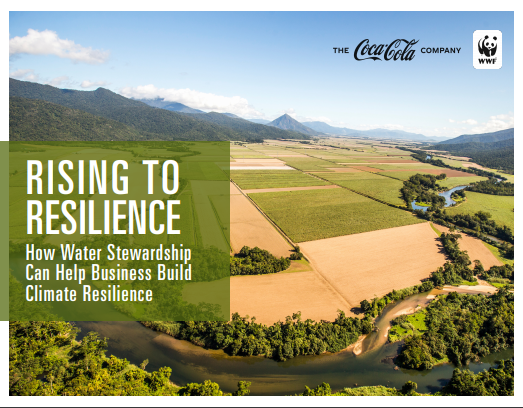WWF warns cities face alarming rise in water risks and must urgently invest in greater resilience
- December 1, 2020
- Posted by: Elaine Coles
- Category: Global, Water Issues

With water crises already plaguing many of the world’s cities, WWF’s new water risk scenarios estimate that hundreds of millions of people in cities across the globe could face dramatically increased water risks – unless urgent action is taken to mitigate and adapt to climate change.
According to the scenarios in the WWF Water Risk Filter, the 100 cities that are expected to suffer the greatest rise in water risk by 2050 are home to at least 350 million people as well as nationally and globally important economies. Globally, population from areas of high-water risk could rise from 17% in 2020 to 51% by 2050.
Released on World Cities Day, the list includes cities such as Beijing, Jakarta, Jaipur, Johannesburg, Istanbul, Hong Kong, Mecca and Rio de Janeiro. China accounts for almost half the cities.
“Cities across the world have paid a high price in recent years due to worsening water risks. From acute risks that have seen historic floods to chronic risks that have seen their taps running dry, the water challenges cities are facing are only going to increase in the coming decades because the impacts of climate change will primarily be felt through water,” said Alexis Morgan, WWF Global Water Stewardship Lead.
“Cities can avoid the worst case scenario not only by supporting greater global efforts to mitigate greenhouse gas emissions, but critically by also investing in Nature-based Solutions that build resilience to water risks at the river basin level. Enhancing the health of watersheds, river basins and wetlands strengthens cities’ resilience and helps to ensure urban economies can withstand and bounce back from these scenarios,” added Morgan.
While improving urban water infrastructure and cutting water consumption will help reduce water risks, Nature-based Solutions – such as restoring degraded watersheds, reconnecting rivers to their floodplains, and restoring or creating urban wetlands – are critical to avoiding the worst case scenario and to safeguarding economies and human wellbeing.
Public funds will be needed in some cases, but bankable water solutions also offer effective ways to invest in projects that can enhance the health of freshwater ecosystems, reduce water risk and generate returns.
Private sector companies and financial institutions also have a vital role to play in reducing water risk to their operations and assets as well as cities, which are the main engines of sustainable economic growth. By working together with cities, they can collectively distribute the load of enhancing basin level resilience.
The new climate and socio-economic pathway-based scenarios for 2030 and 2050 are available in the WWF Water Risk Filter – the leading online tool for assessing, valuing and responding to water risk.
The scenarios are aligned to the Task Force on Climate-related Financial Disclosure (TCFD) recommendations and can help companies, and cities, better understand future water risks and drive more effective corporate action on climate and water resilience.
“Companies, cities, and investors – even ministries of finance, are finally waking up to the growing water risks facing the economy and the need to take urgent action to reduce their risks and tackle shared water challenges,” said Morgan. “By harnessing the new scenarios in the Water Risk Filter, companies, cities and investors can better assess, respond and plan for climate and water resilience – helping to reduce water risks to their own operations as well as cities.”
Click here to download WWF Rising to Resilience Water Stewardship guide
